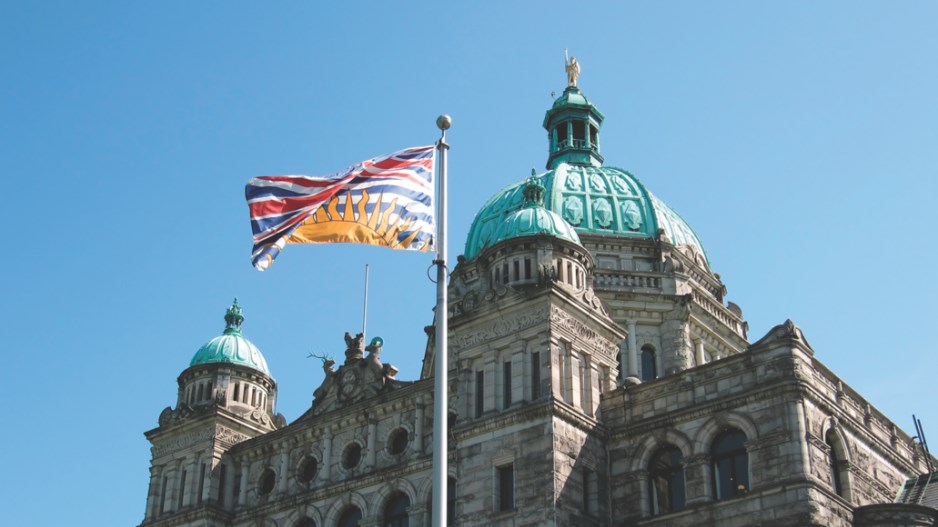Officials from the Canadian Olympic Committee and four host First Nations weren’t willing to admit Friday that their bid for the 2030 Winter Olympics was over, despite the NDP government’s refusal to underwrite another Olympics.
But, hours later, the office of Lisa Beare, the Tourism, Arts, Culture and Sport Minister, reiterated the decision that was announced the previous day.
During a news conference at the B.C. Sports Hall of Fame, where the bid exploration was originally announced last December, Squamish Nation council spokesman Wilson Williams said “our canoe is stalled for now.” Musqueam Indian Band Chief Wayne Sparrow hoped the NDP would flip-flop like it did with FIFA for the 2026 World Cup. After not agreeing to bid demands in 2018, the NDP government reopened negotiations in 2021 and B.C. Place was named a host venue last June.
Unlike FIFA, the International Olympic Committee doesn’t have the luxury of time. It wants to begin negotiations with bidders as soon as December and decide the 2030 host by next October. It originally wanted to name the host in May 2023. Salt Lake City and Sapporo, Japan remain in line.
A statement attributed to Beare said the COC gave a November deadline for a funding decision. Cabinet decided it could not afford to approve spending time or money on another Games, “while there are many competing priorities and challenges to be addressed.”
“Cabinet reviewed the proposal carefully with these timelines in mind before coming to a decision to decline our support for the 2030 bid, given the significant investment and risks involved,” said Beare’s statement. “I met with the host First Nations and the COC virtually on Monday to relay that decision on behalf of cabinet as I am the Minister responsible for sport. I understand the Nations are disappointed in this process and for that, I am truly sorry.”
COC president Tricia Smith said the bid team wanted one more chance to make its case to provincial and federal officials.
“That’s all we're asking for, let's get in a room,” Smith said. "If it doesn't make sense at the end of the day. I'm with everyone at the table here, it doesn't make sense and we don't go forward.”
She said the reconciliation-themed bid relied on revitalizing venues from the 2010 Games, except for building new athletes villages which could have provided much-needed social housing stock.
Williams didn’t dismiss the possibility of regrouping to bid for the 2034 Games, but Smith said there would be more competition. Germany, IOC president Thomas Bach’s home country, has already announced it is exploring a bid for winter 2034 or summer 2036. While Salt Lake City is in the running for 2030, it had expressed preference for 2034 due to Los Angeles already hosting the 2028 Summer Games.
Beare’s predecessor, Melanie Mark, had ordered a business case from the COC and Four Host First Nations in mid-August. A government source who reviewed the most-recent version said it fell short of expectations because many questions were unanswered and it suggested municipalities shoulder more costs than originally contemplated.
There were also differences between what the feasibility team made public in July with what was on the desk of politicians and their staff earlier this month.
For instance, the July estimates said the 2030 Games would cost taxpayers $1 billion to $1.2 billion to help pay for venues, villages and security. The organizing committee, funded by broadcast rights payments, sponsorship, ticket sales and merchandise, would be responsible for $2.5 billion to $2.8 billion to plan and stage the Games.
The latest version of the budget, however, said $1.309 billion would be needed from taxpayers plus $384 million for contingencies, for a total of nearly $1.7 billion in public funding.
The new budget also included $150 million for legacy endowment funds and $277 million worth of in-kind land contributions from First Nations and municipalities. The grand total: $2.12 billion, which was estimated to be worth $2.715 billion by 2030.
The federal government was asked to pay a 50% share of the public-funded portion and B.C. 35% plus a guarantee to cover any deficits. Federal sport minister Pascal St-Onge said Thursday that she respected the B.C. decision because an Olympics would require all levels of government to approve.
The COC proposed reusing most of the Vancouver 2010 venues in Vancouver, Richmond and Whistler, with the exception of the Agrodome for curling, Hastings Racecourse for big air skiing and snowboard jumping and Sun Peaks resort near Kamloops for snowboarding and freestyle skiing. The proposal did not attach individual cost estimates for venue upgrades, but included long lists of needed and wanted works.
The June-released proposal said the Vancouver Olympic Village could be built on MST Development’s Jericho lands or Heather lands. But the latest, unpublished version proposed a third option, the former Liquor Distribution Branch warehouse property on East Broadway near the Rupert SkyTrain Station — just over 4 kilometres from the proposed Olympic Park on the Pacific National Exhibition grounds.
The latest version of the bid also suggested Whistler’s Olympic Village could be built at the golf club driving range near Whistler Village or at Cheakamus Crossing, near the 2010 athletes’ village.
The 2010 Games are believed to have cost $8 billion, all-in. The true costs are unknown, because the Auditor General never did a post-Games study, the organizing committee was not subject to the freedom of information law and its board minutes and financial files won’t be open to the public at the City Archives until fall 2025.




